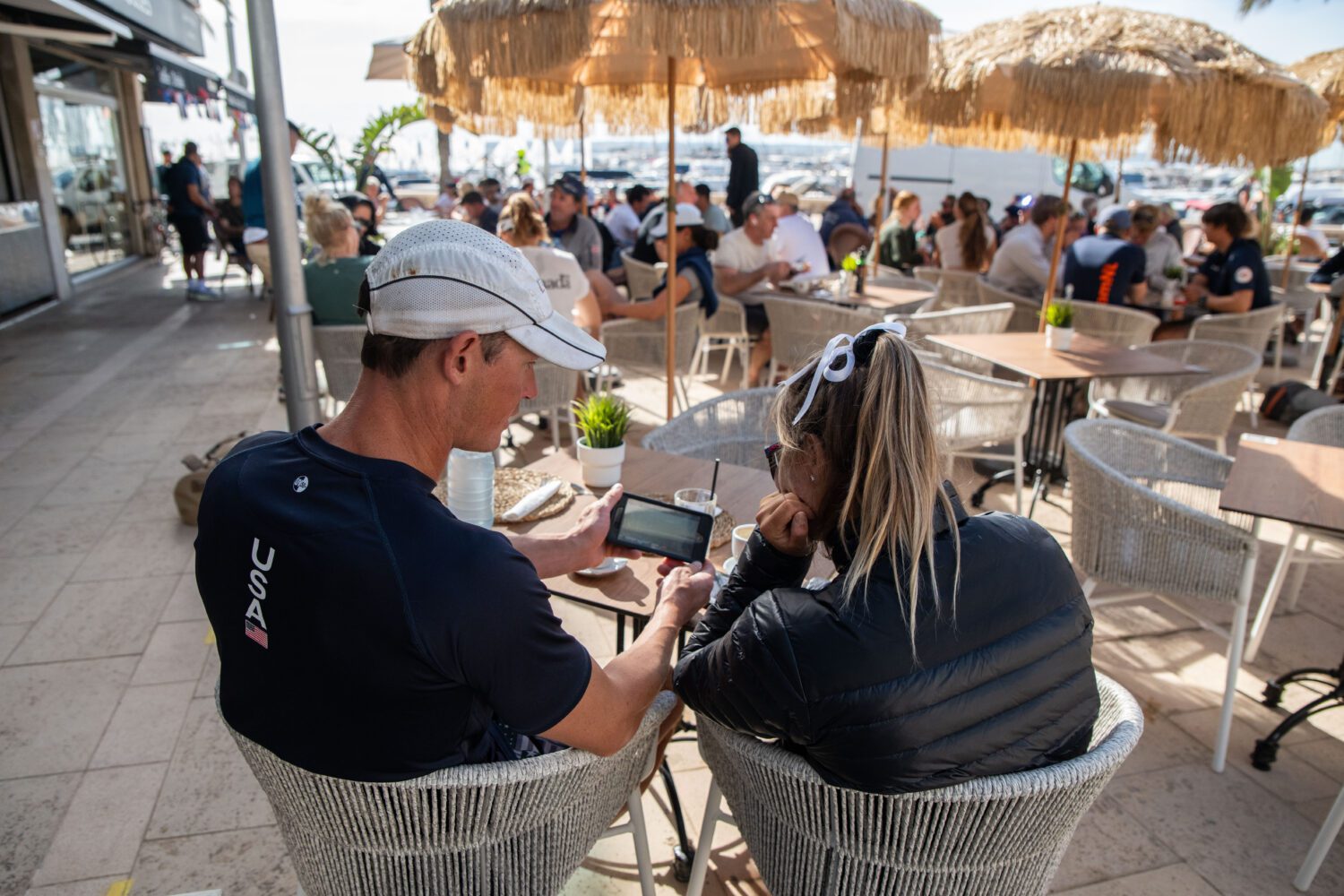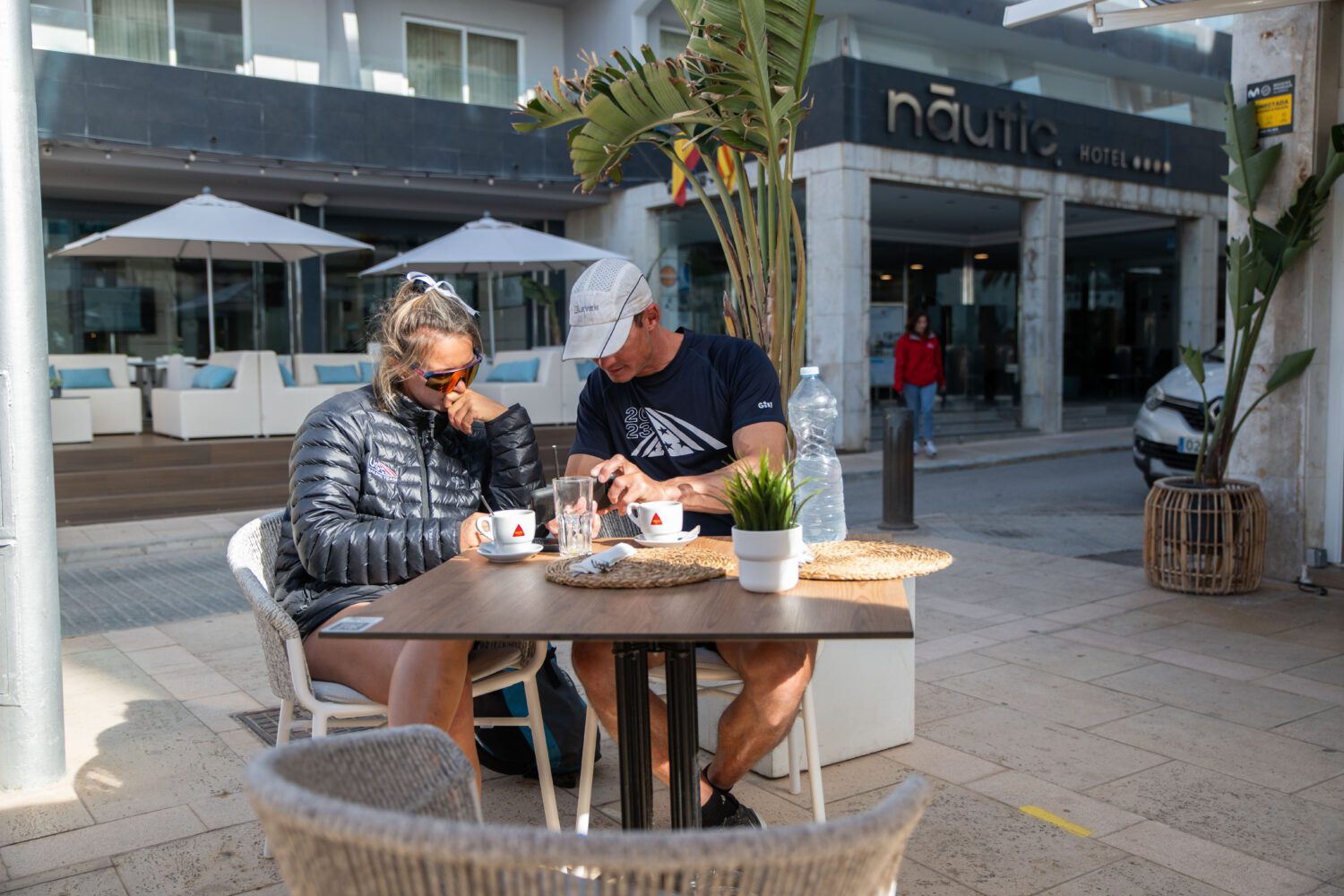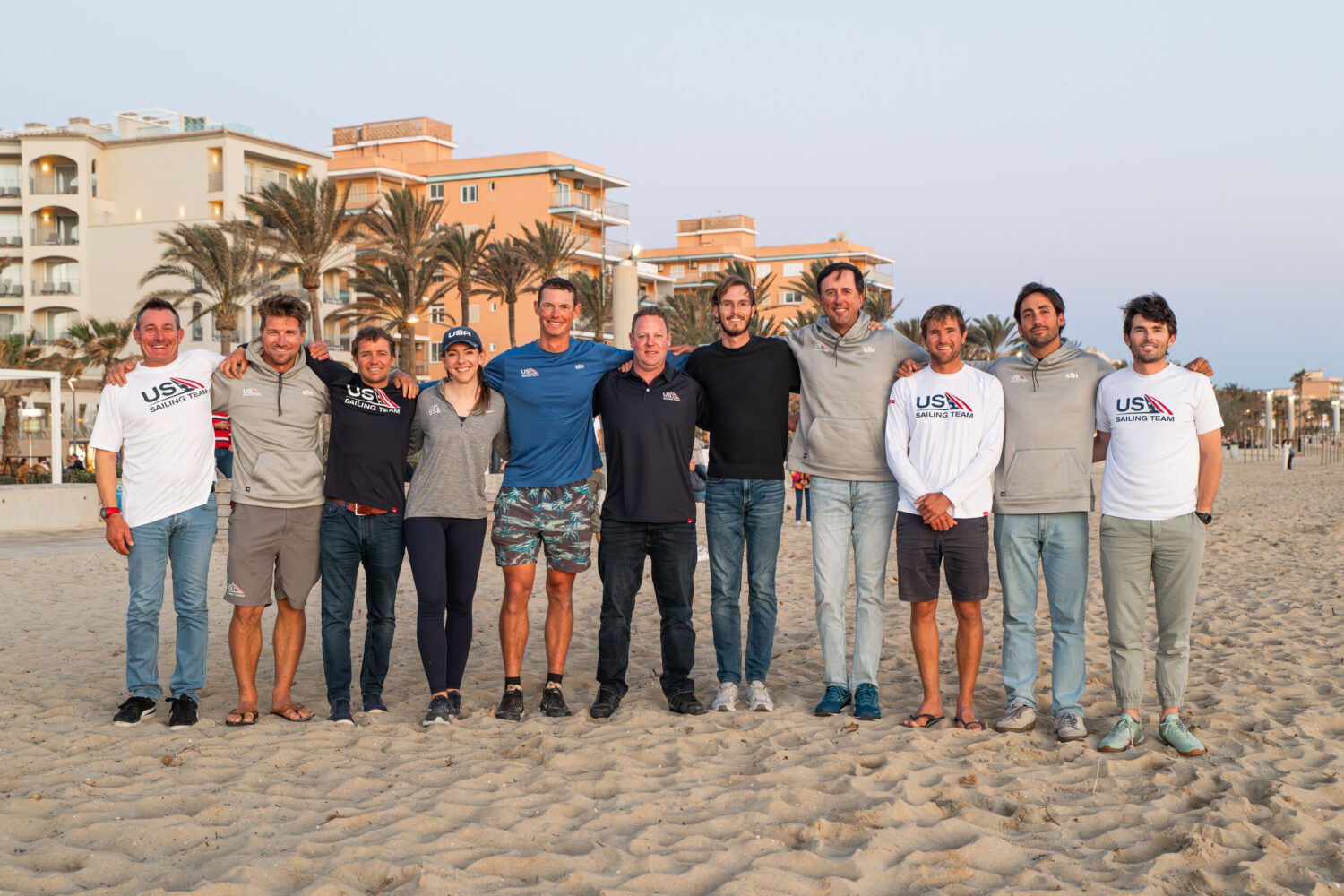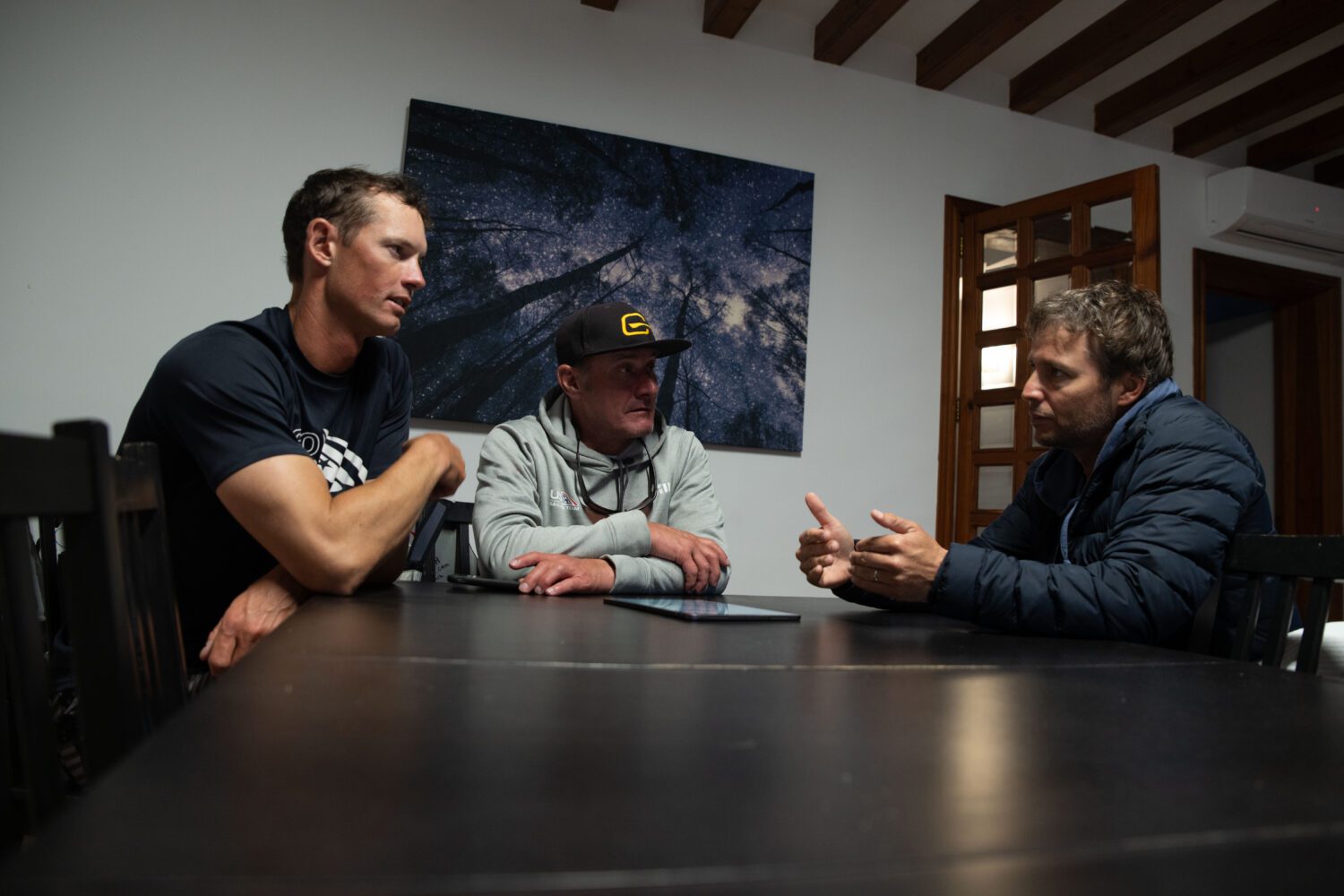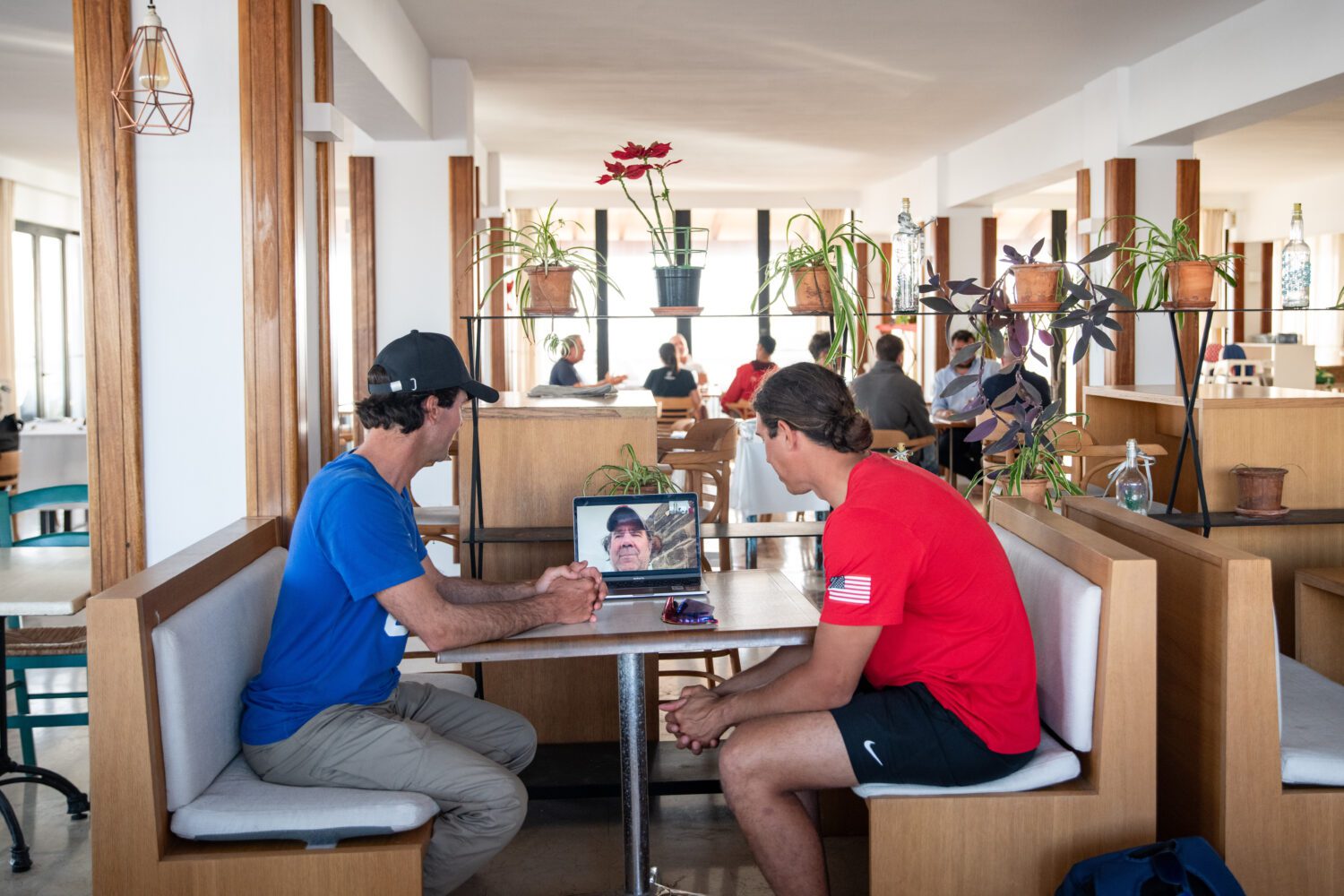The US Sailing Team provides what it takes to support Olympic Class athletes through long, intensive regattas
Last week, Palma de Mallorca welcomed over 1,000 athletes to Mediterranean waters for the largest turnout in an Olympic year in the Trofeo Princesa Sofía’s 53 year history. All eyes were on the Bay of Palma as athletes across all ten Olympic classes faced off against their international competitors with the Olympics just a stone’s throw away on both the calendar and the map.
It’s not just coaching. The US Sailing Team supports our athletes throughout the pre-training period and six days of intense racing with logistical and operational support, physical therapy and recovery work, nutrition consulting, sports psychology, meteorology, rules advice, and more. Including class coaches, 24 total support staff were working to help make sure that our athletes put their best foot forward on the international stage.
It takes a village, and we’re taking you behind the scenes for a look into what it takes to make it happen.
During a wind delay, Paris 2024 Nominated ILCA 6 Athlete Erika Reineke and USST ILCA 6 Coach Erik Bowers review footage of Erika’s downwind legs from the Trofeo Princesa Sofía.
Technology plays an integral role when reviewing performances or recognizing trends on the race course. Our coaches use video, photos, tracking data, and performance analysis to maximize athlete success.
USST Sport Psychologist Jessica Mohler meets with new USST Women’s iQFOiL coach Pedro Pascual at the Can Pastilla Marina. Pascual recently transitioned to coaching after competing in the RS:X at the Rio and Tokyo Olympics and is now learning the best ways to support athletes in his new role.
Jessica helps athletes optimize their performance in a range of uncertain and high pressure situations by focusing on whats controllable, their teamwork, mindset, and recovery.
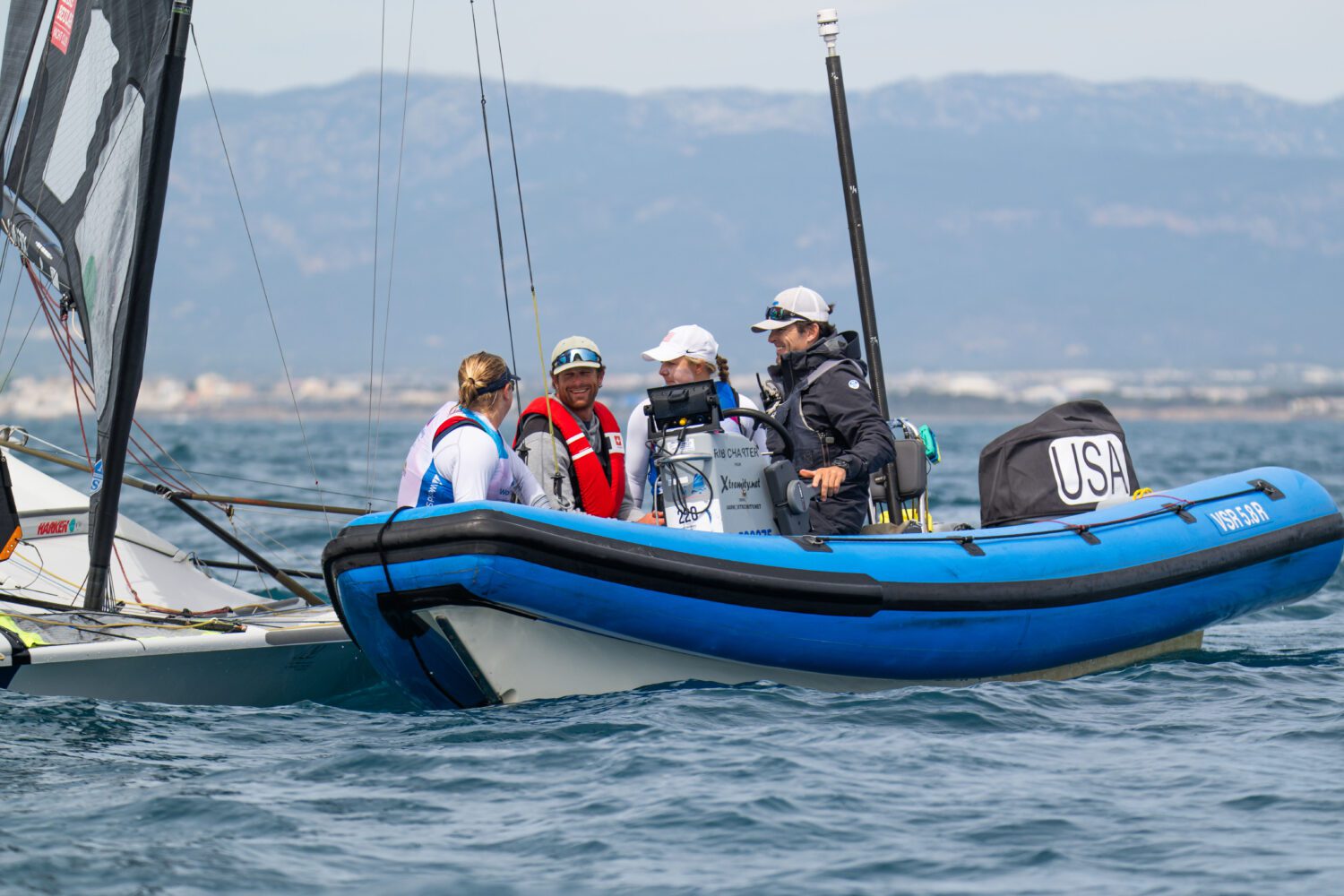
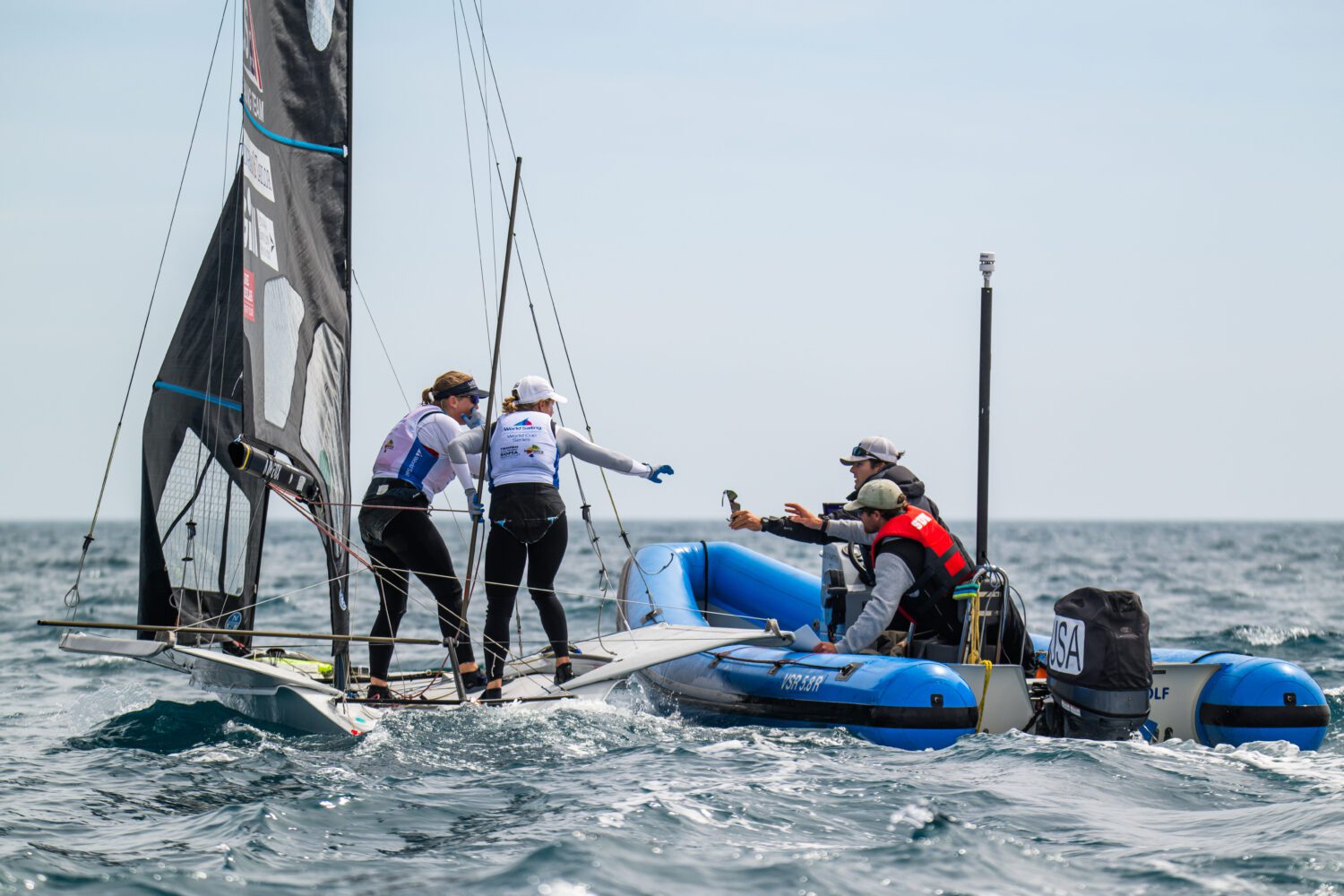
Coach and staff dinner on April 3, day 3 of the 53rd Trofeo Princesa Sofía. From left to right: Ryan Minth (USST ILCA 7 Coach), Tom Zajac (USST Nacra 17 Coach), Robby Bisi (USST Mixed 470 Coach), Allison Chenard (USST Media & Communications), Erik Bowers (USST ILCA 6 Coach), Marcus Lynch (High Performance Director), Tucker Atterbury (Kite Caddy for Daniela Moroz), Alex Saldanha (USST ILCA 6 Coach), Chris Rashley (USST Women’s Kite Coach), Pedro Pascual (USST Women’s iQFOiL Coach), and Evan Aras (USST 49erFX Coach).
[Not pictured but in attendance in Palma: Jessica Mohler (USST Sport Psychologist), Juanma Moreno Vega (USST Men’s iQFOiL Coach), Chris Ellis (USST Director of Medical Operations), Lexi Pline (Media), B Lindsay (USST Data Analyst)]
The support team is the team behind the athletes. Through collaboration, knowledge transfer, and sharing ideas and concepts, the support team adds value to the whole program.
Scenes from the Formula Kite venue in Palma de Mallorca: Daniela Moroz (Paris 2024 Nominated Athlete, Women’s Formula Kite) with USST Women’s Kite Coach Chris Rashley and her caddy, Tucker Atterbury, before a day of racing at the Trofeo Princesa Sofía. The team of three has a dialed in process to carefully review equipment and check delicate rigging lines, execute daily preparation for high profile regattas, and set up for success on the water.
Paris 2024 Nominated Athlete Erika Reineke (ILCA 6) receives physiotherapy and recovery treatment from Dr. Chris Ellis (USST Director of Medical Operations) at the US Sailing Team home base in Palma de Mallorca. As Director of Medical Operations, Dr. Ellis works frequently with athletes out of his Force Sports Therapy clinics around southern Florida. Dr. Ellis and other Force Physiotherapists join the Team on site for large, multi-class regattas and will be in Marseille this summer.
When they’re not at regattas, Dr. Ellis and his team work with the athletes on strength and conditioning training, fitness optimization, proper training recovery methods, and more to ensure the athletes’ bodies are in peak condition to perform.
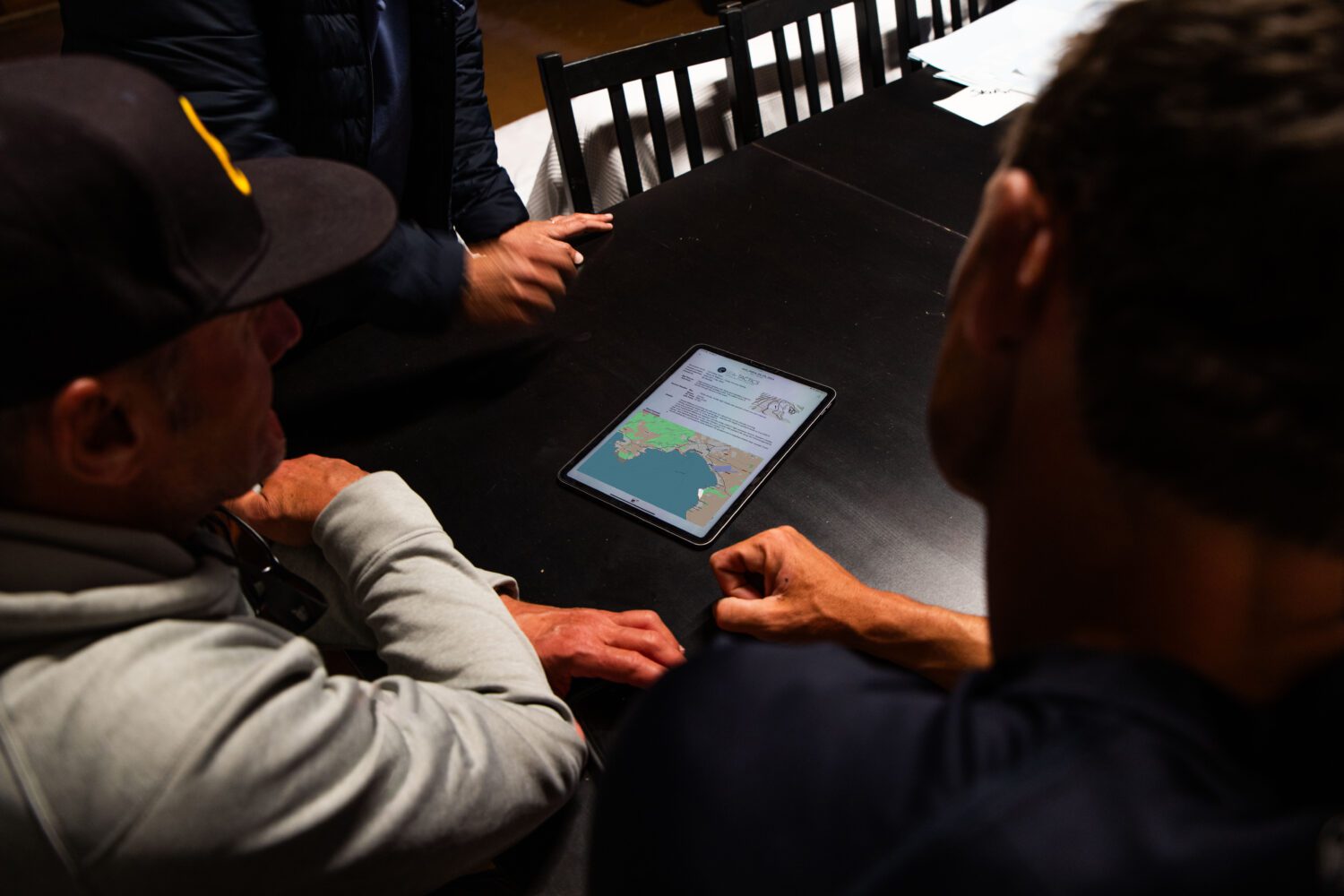
Erik Bowers (USST ILCA 6 Coach), Ryan Minth (USST ILCA 7 Coach), and Robby Bisi (USST Mixed 470 Coach) gather around the day’s forecast, provided by USST Meteorologist Chelsea Carlson Freas, to debrief how the day’s weather played out compared to the report. Forecasts are sent to Team members and staff each morning and constant communication runs throughout the day in a weather-centered group chat to share knowledge about what’s taking place on the water, supplemented by additional insights from Chelsea as the day plays out.
Noah Lyons (USST Men’s iQFOiL Athlete) and Juanma Moreno (USST Men’s iQFOiL Coach) meet remotely with Dave Perry (USST Rules Expert) to review notes before entering a protest hearing. When he isn’t on site, Perry remains on-call to help athletes with rules and procedural inquiries during large events. Dave also trains athletes on how to best present themselves in hearings, how to effectively communicate situations that played out on the water, and how to keep cool under the intense pressure of a hearing room.
Left: USST ILCA 6 Coach Alex Saldanha taking time with USST ILCA 6 Athlete Charlotte Rose to get some shade and stay hydrated at a nearby cafe during a postponement.
Right: Long before anyone lands in Palma, Sally Barkow (not pictured, Head of Operations), Kate Drummey (Olympic Operations Manager) and Tina Cardamone (Olympic Coordinator) work to ensure things run as smoothly as possible once the team shows up. They coordinate boat and equipment transport, manage registrations, secure flights and housing, make sure all ribs are sorted and working, and much more.
Scenes from the Skiff, Nacra, and 470 boat park in El Arenal, the easternmost of the three Trofeo Princesa Sofía venues:
Photo 1: USST 49erFX coach Evan Aras arrives at the boat park with USST 49er crew Ian MacDiarmid, each on typical Palma transports (bikes and scooters!) for regatta season.
Photos 2-4: USST Mixed 470 Coach Robby Bisi connects with Paris 2024 Nominated Mixed 470 athletes Lara Dallman-Weiss and Stu McNay in the boat park before their final day of racing.
Photos 1 & 2: USST ILCA 7 Coach Ryan Minth meets with USST ILCA 7 Athlete Ford McCann and his brother, Marshall McCann, who will soon compete at the “Last Chance Regatta” in Hyères, France, April 20-27, for the final opportunity to secure Ford’s ticket to represent USA in Marseille this summer. Any American can secure country qualification at the Last Chance Regatta, so it’s an all-hands-on-deck effort for these three and Leo Boucher (not in attendance in Palma), who have committed to the group effort to secure USA ILCA 7 representation at the Paris 2024 Olympics.
Photo 3: US Sailing Team’s Sarah Newberry Moore and David Liebenberg check in with USST Nacra 17 Coach Tom Zajac between races on their last day of the Trofeo Princesa Sofía.
Photo 4: Men’s iQFOiL athlete Noah Lyons and USST Men’s iQFOiL Coach Juanma Moreno smile for the camera after wrapping their regatta on the Bay of Palma. Lyons is preparing for the “Last Chance Regatta” taking place in Hyères, France, April 20-27, where he will work to secure country qualification and officially punch his ticket to Marseille this summer after winning Trials in Miami in January.
Stephanie Roble and Maggie Shea meet before racing with USST 49erFX Coach Evan Aras in the cafe near the 49erFX boat park to review footage from the previous day. Coaches use video as an important tool to supplement feedback from athletes about how the boat felt compared to how the boat performed, as viewed from the outside. They critique movement and dial in communication between double-handed teams so processes are as routine and effortless as possible in high pressure scenarios.
Following a day on the water collecting photos, videos, and social media content, Allison Chenard (USST Media and Communications ) and Lexi Pline (US Sailing Association Media and Communications) work in the Trofeo Princesa Sofía Media Center with media representatives from other countries, all pushing out news about the day’s events.
Allison uses social media, photos, videos, press releases, direct emails, and web updates to help fans and followers back home feel as part of the action as possible. In the Olympic year, Lexi Pline joins from the US Sailing side so the pair can dial in the communications choreography for Paris 2024.
On and off the water, the US Sailing Team is committed to supporting our athletes in their pursuit of Olympic success. Be it coaching, physiotherapy, sports psychology, nutrition, rules, logistics, equipment optimization, communications, or even just an ear to listen, the US Sailing Team is there to help the athletes achieve their Olympic dreams.


